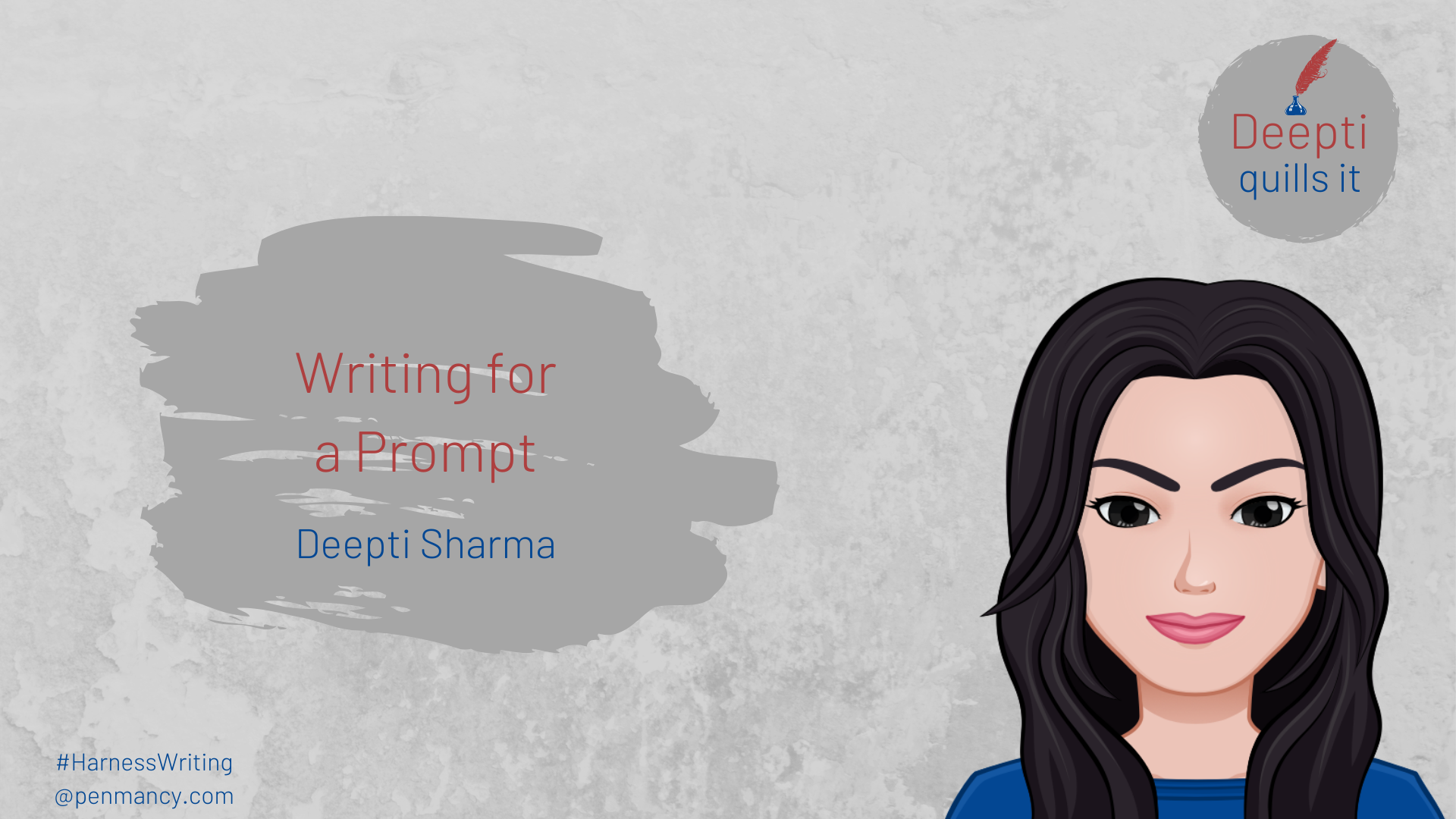
Social media might have been a fatal reality for so many in various ways but for writers like us, it has been such a benediction, a curveball for a lot of us here. It has brought sheer validation to our pipe dreams that, yes, we can write as well. It has let our writing resonate with so many like-minded people. On Facebook or Instagram or plenty of other platforms, many publications come up with various anthologies based on a theme or topic. Also, there are many e-zines and journals or groups like Penmancy that give us prompts and challenge our versatility and creativity and with the little nudge by them, we give flight to our fertile imagination. So today let’s talk a bit about writing for the prompts. We are either given a picture or a theme or a blurb and all we have to do is write, interpreting it our way. Personally, this I find very gratifying. Why? Because one, it gives us a direction as to what needs to be done as finding a muse constantly is one of the hardest challenges for writing and two it challenges us to try and be different from each of the others entry, for we want it to stand out, right? So, firstly what I do while writing for a prompt is, I read about the prompt, take a screenshot of the page and then I log out, I don’t read other poems until I post mine. That way I am not influenced by the other’s interpretations and chain of thoughts. Then I look at the picture or read the prompt and strike out the obvious elucidations, and tell my grey cells to look for some nuanced trick, something in the picture that can be an allusion, or something very secretly specific in the narrative of the prompt, like in one of the prompts, there was a picture where a very knackered looking man was sitting at the foot of a moving train door, looking wistfully out, so I compared the moving scenery outside with his past that is coming as a flashback to him, where his tiredness was mitigated by the rendezvous with his lover. Here the motion in the picture had a narrative hidden, I exploited that. If you are writing poetry then it becomes much easier because poetry liberates you from the obvious, you can be as esoteric as it can get. Secondly, what I try to do is give some high points either to the character of the protagonist or to the events in the poem, but always try to do that. This can be shock value, an X- factor, that alleviates your poem in the reader’s mind. Force him to say ‘wow’ at least once in your poem. This makes your poem stay with your reader. A very good example of this is a poem by Emily Dickinson, which goes like... ‘Because I could not stop for death... He kindly stopped for me The carriage held but just ourselves... And immortality’ Here in the first line itself, the poem is set in your mind where the poetess very impassively personifies death, and so the casualness of the treatment of the word ‘death’ intrigues you and poem keeps coming back to you even after years of reading it. And lastly, always let your reader meander in your poem as his/her own. They should be able to relate to it on (maybe) an emotional level, a psychological level or on an intellectual level, but they should travel with your thoughts. So, writing for a prompt is the best way to hone your skills, instant reviews and critiques always make you polish your craft better and shine brighter. Happy Writing! _______ _______
